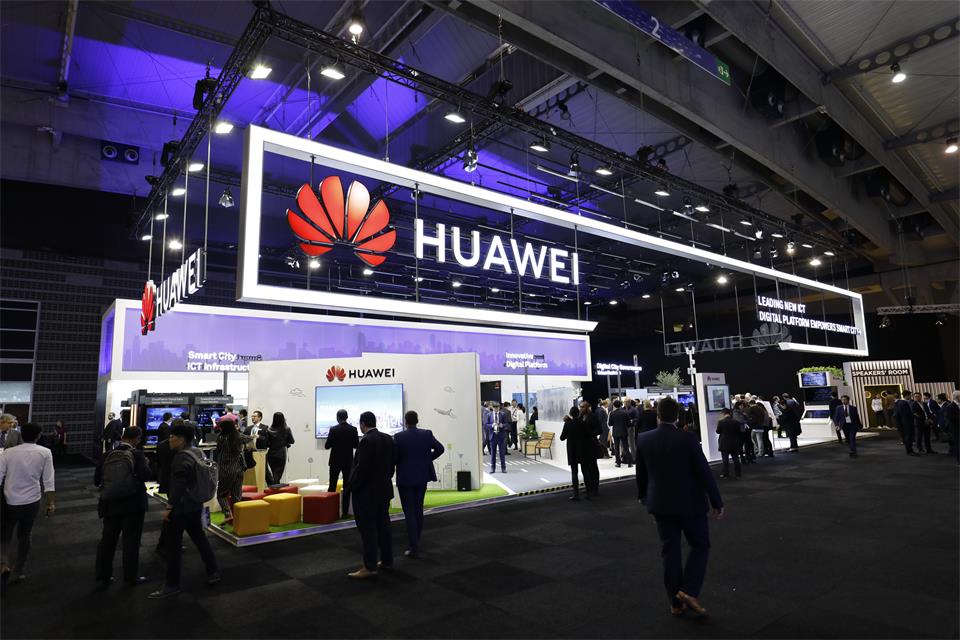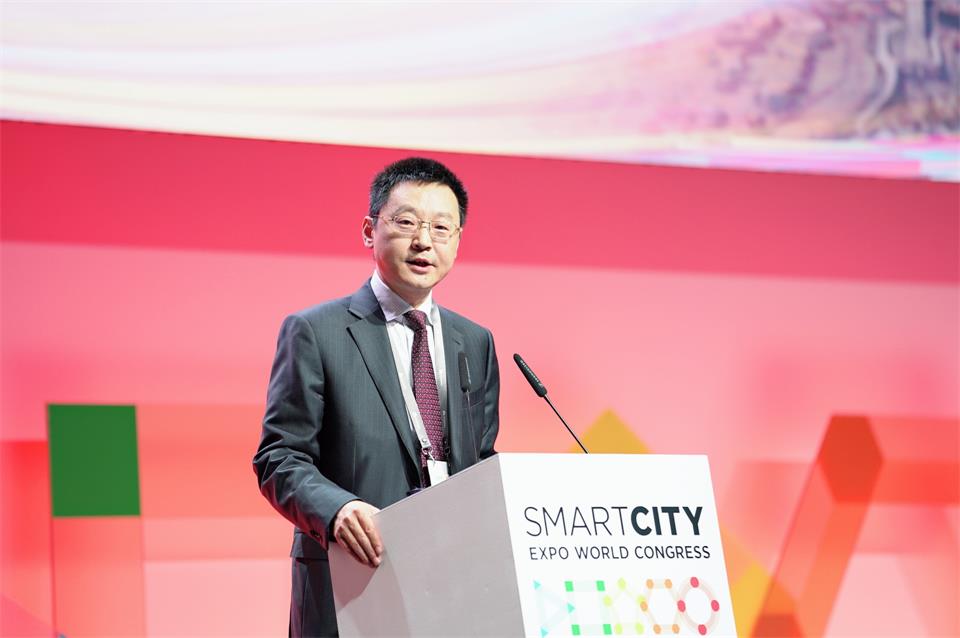This site uses cookies. By continuing to browse the site you are agreeing to our use of cookies. Read our privacy policy>![]()
This site uses cookies. By continuing to browse the site you are agreeing to our use of cookies. Read our privacy policy>![]()
Enterprise products, solutions & services
[Barcelona, Spain, November 13, 2018] Today, at the Smart City Expo World Congress (SCEWC) 2018 Huawei showcased its Digital Platform based on leading new ICT including artificial intelligence (AI), internet of things (IoT), big data and cloud, enabling city-wide intelligence and sustainable development across the international smart city industry. Huawei and its global partners demonstrated solutions based on the platform covering municipal management, public safety and environmental protection, as well as smart transportation, smart government, smart education, and smart agriculture. These solutions are designed to facilitate city governance, improve public services, and enable industry innovation and best practices. During SCEWC, Huawei hosted its Global Smart City Summit 2018 with the theme of “Digital Platform Empowers Smart City+” to introduce its Digital Platform for smart cities. At the Summit, renowned industry associations such as TM Forum and EUROCITIES, and representatives from Singapore, Gelsenkirchen, Yanbu and Jazan shared their ideas and experiences of smart city development with more than 400 city administrators from around the world.

The Smart City Expo World Congress (SCEWC) 2018 is being held in Barcelona, Spain, the Huawei’s booth is located above.
Building a Digital Platform to Enable Smart Cities
Digital technologies are becoming deeply embedded in all areas of many of today’s cities including urban governance, citizen life, public safety and industrial development. As a result, a smart city development race driven by the growing global digital economy is taking place around the world. Smart city adoption has undergone the first stage of breaking down data silos, the second stage of the rise of mobile Internet applications, and the third stage of IoT deployment for collection of mass volumes of city data. It is now at the fourth stage, where cities are improving their management capabilities through AI-enabled data mining, achieving the integration of digital technologies and city governance to promote sustainable city development.

Figure: Ma Yue, Vice President of Huawei Enterprise Business Group and President of the Global Sales Department of Huawei Enterprise Business Group delivering a keynote speech
Ma Yue, Vice President of Huawei Enterprise Business Group and President of the Global Sales Department of Huawei Enterprise Business Group, said: “The development of a smart city is a highly complex project. As a world-leading ICT product and solution provider that delivers cloud-pipe-device synergy, Huawei can achieve the integration of cloud, IoT, video and edge computing with AI technologies, connecting the entire city nervous system – the ‘brain’ (command center), ‘central nervous system’ (network), and ‘peripheral nervous system’ (sensors). This constructs a ‘+AI Digital Platform’ that is open and fuels the digital transformation of cities of the future. Just like an operating system, the platform is compatible with different city sensors, creates a city digital twin, and supports diverse city applications. Huawei’s Digital Platform is highly efficient and open to facilitate collaboration with ecosystem partners. It also offers top-level design, integration, operations, service application, and other capabilities required for effective smart city development. In the future, Huawei’s +AI Digital Platform will form the smart foundation of more and more cities, promoting sustainable city development worldwide. We look forward to setting smart city benchmarks with customers and partners.”
International, cross-industry thought leaders and city administrators also believe that global smart city construction signals the advent of a platform-based era.
Huawei Launches Digital Platform for Smart Cities based on its “Platform + Ecosystem” Strategy
At the Summit, Huawei launched its Digital Platform for smart cities. AI is at the core of the platform which integrates IoT, big data, Geographic Information System (GIS), video cloud and converged communications resources. The platform represents a shift from traditional information systems and lays a solid foundation for smart city development. Huawei has also developed a middleware platform to provide services to software application partners. This is designed to help application partners quickly develop upper-layer applications to accelerate transformation and innovation in city management, city services, and industry development.

Figure: Launch ceremony of Huawei’s Digital Platform for smart cities
Huawei’s Digital Platform for smart cities leverages several unique capabilities. Firstly, Huawei is the industry’s first vendor to provide a full-stack digital platform covering cloud-pipe-device technology, and Platform as a Service (PaaS) capabilities. Secondly, the Digital Platform for smart cities has comprehensive components and capabilities at the PaaS layer including IoT, big data, GIS, video cloud, converged communications, AI, and information security. The platform also includes an industry enablement platform that integrates these capabilities. Huawei’s sustainable advantages are the result of its self-developed chips, algorithms, and architectural design, with technical innovation driven by customer demand, as well as continuous R&D investment.
To date, the Huawei Smart City Solution has served more than 160 cities in over 40 countries. For example, in Duisburg, Germany and Sardinia, Italy, the solution facilitates the development of startup companies, improving the cities’ investment environment as well as the lives of citizens. In Rustenburg, South Africa, and Serbia, digital technologies continue to improve city development capabilities. Meanwhile, in the North Atlantic volcanic archipelago and Tianjin’s Binhai New Area, AI enables cities to understand more about citizens to enhance city services.
Huawei works with cities across the world to explore digital transformation based on its Digital Platform, converged solutions from ecosystem partners, and integrated support from all stakeholders. In the future, Huawei’s Digital Platform, with the latest AI technologies, will become the foundation of more smart cities and bring digital to every person, home and organization for a fully connected, intelligent world.
The Smart City Expo World Congress (SCEWC) 2018 is being held in Barcelona, Spain, from November 13 to 15. Huawei’s booth is located at B200 of the Gran Via 2 exhibition hall (Hall 2).